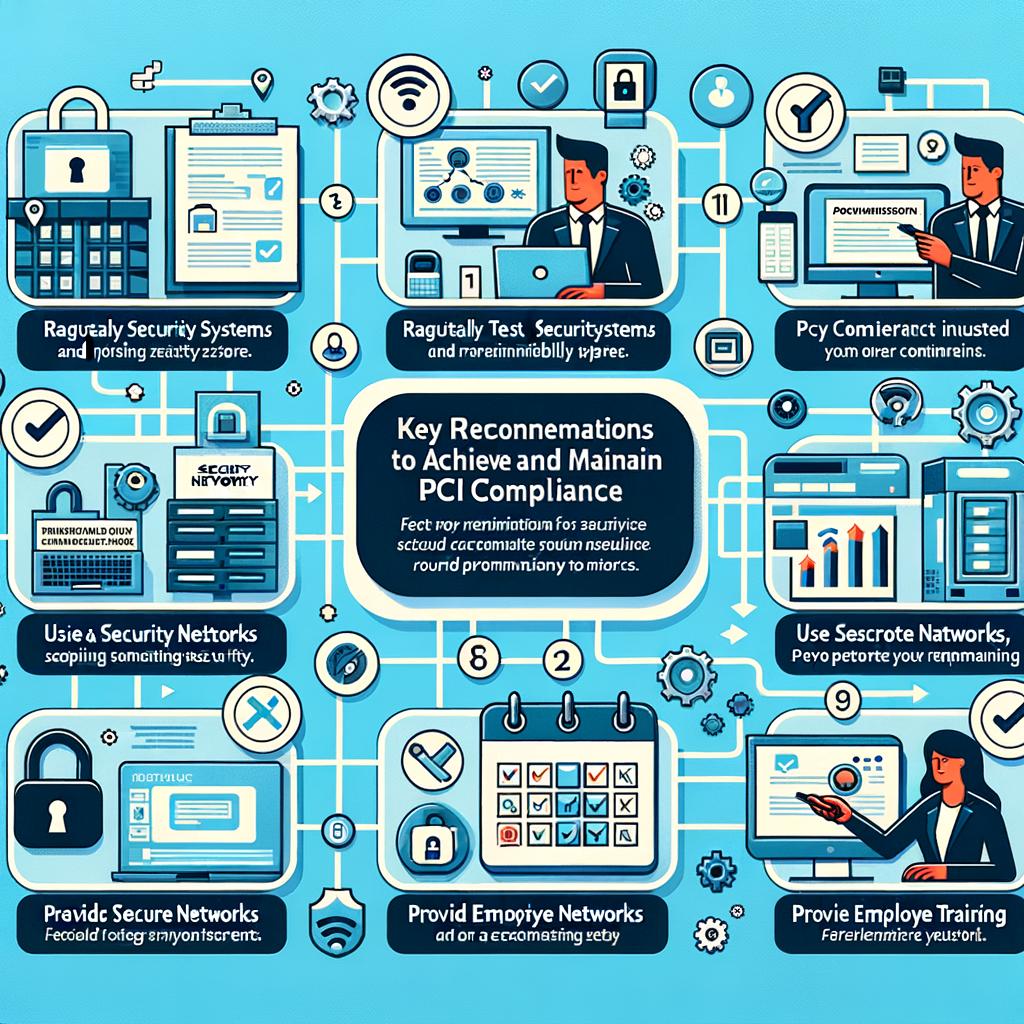The Role of PCI Compliance in Card Processing
Are you tired of playing a risky game of ”credit card roulette” every time you swipe your plastic? Well, fear not, my friend, because it’s time to get familiar with the star of the show: PCI compliance! In this intriguing article, we’ll delve into the captivating world of card processing and uncover the sizzling hot secrets behind PCI compliance. Buckle up, dear reader, because we’re about to embark on a thrilling journey… and no, there won’t be any snakes on this plane! So, grab your popcorn, sit back, and let’s unravel the mystery of how this hip term can save the day in the realm of credit card processing!
The Payment Card Industry (PCI) Compliance: Ensuring Security in Card Processing
In the world of card processing, ensuring the security of payment transactions is of utmost importance. This is where PCI compliance plays a crucial role. PCI compliance refers to the set of guidelines and standards designed to protect sensitive customer information during the processing, storage, and transmission of payment card data.
By adhering to PCI compliance, businesses can create a secure environment for their customers, mitigating the risks associated with fraud and data breaches. Complying with these standards helps to build customer trust and loyalty, as it demonstrates a commitment to protecting their personal and financial information. It also safeguards the reputation of the business, ensuring that it remains reputable and reliable in the eyes of its stakeholders.

Understanding the Significance of PCI Compliance for Businesses
When it comes to card processing, PCI compliance is an essential factor that businesses cannot afford to overlook. With the increasing number of online transactions and the potential risks of data breaches, understanding the significance of PCI compliance is crucial. So, what exactly is PCI compliance and why is it important?
PCI compliance refers to the adherence of businesses to the Payment Card Industry Data Security Standard (PCI DSS). This standard ensures that organizations that process, store, or transmit credit card information maintain a secure environment that protects sensitive cardholder data. By complying with PCI DSS, businesses can minimize the risk of data breaches, fraud, and unauthorized access to cardholder information.

Key Recommendations to Achieve and Maintain PCI Compliance
When it comes to processing card payments, ensuring PCI compliance is absolutely crucial. To keep sensitive customer information secure and protect your business from potential breaches, it’s important to follow these key recommendations:
- Regularly update and patch your systems: Install the latest security patches and updates for all software and hardware components involved in card processing. This helps to address any vulnerabilities and stay one step ahead of potential threats.
- Implement strong access controls: Limit access to payment card data to only those personnel who require it to perform their jobs. Apply unique user ID and password combinations, and regularly review and update access privileges.
- Use encryption and secure transmission: Encrypt cardholder data both in transit across open, public networks and at rest. Securely transmit data using trusted encryption methods, such as SSL/TLS protocols, to prevent unauthorized access.
- Monitor and test your systems regularly: Implement continuous monitoring and periodic vulnerability assessments to identify any potential weaknesses or vulnerabilities. Regularly test security systems and processes to ensure they are working effectively.
Remember, achieving and maintaining PCI compliance is an ongoing effort. By following these recommendations, you can significantly reduce the risk of data breaches, protect your customers’ information, and maintain a secure payment processing environment for your business.

Staying Ahead of Potential Threats: Best Practices for PCI Compliance
Staying ahead of potential threats is crucial in the world of card processing. Implementing and adhering to PCI compliance protocols is the key to safeguarding sensitive customer information and maintaining the trust of your clientele. Here are some best practices to ensure a secure and compliant card processing environment:- Regularly Update Software and Patches: Keep your systems up to date with the latest software versions and security patches. This reduces vulnerabilities that hackers can exploit.
- Train Employees: Educate your staff on PCI compliance guidelines and the importance of data security. Provide regular training sessions to ensure everyone is aware of their role in maintaining a secure environment.
- Use Strong and Unique Passwords: Encourage the use of complex passwords that are hard to guess. Implement two-factor authentication for added security.
- Encrypt Data: Use encryption techniques to protect sensitive cardholder data during transmission and storage.
- Limit Access to Sensitive Data: Only grant access to cardholder data on a need-to-know basis. Implement user access controls and regularly review and update permissions.
Following these best practices will not only protect your customers’ cardholder data but also safeguard your business from potential legal and financial consequences. Stay vigilant and ensure your systems and practices align with the requirements of PCI compliance to keep your card processing environment secure.
Key Takeaways
And there you have it, folks – the essential guide to understanding the role of PCI compliance in card processing! We’ve taken a journey through the intricate world of payment card security, peeling back the layers to reveal the importance of protecting sensitive customer data.From the moment you swiped your card at your favorite coffee shop to that online shopping spree that had you clicking away, PCI compliance has been working diligently behind the scenes to keep your financial information safe and sound. It’s like having your own personal bodyguard for your card details!
We’ve learned that PCI compliance isn’t just a fancy term thrown around in the banking industry; it’s a powerful shield that defends against the threat of data breaches and fraudulent activities. So the next time you scroll through those online reviews before making a purchase, rest assured that businesses adhering to PCI standards are doing their part to keep your financial world impenetrable.
But let’s not forget the unsung heroes in this entire process – the businesses themselves! They play a crucial role in ensuring that your card details are secure. By implementing robust security measures and keeping up with the ever-evolving PCI standards, they’re like the lock on the proverbial vault that safeguards your transactions.
So, whether you’re a business owner or a savvy consumer, understanding the ins and outs of PCI compliance is like having a secret weapon at your disposal. It’s the ultimate assurance that your precious plastic is in capable hands, ready to fend off any would-be villains.
With that, we conclude our adventure into the realm of PCI compliance. We hope you’ve gained valuable insights and now appreciate the vital role it plays in card processing. Remember, every time you confidently whip out your card to make a purchase, thank the wonders of PCI compliance for keeping your financial world secure. Stay safe, stay compliant, and keep swiping with peace of mind!



